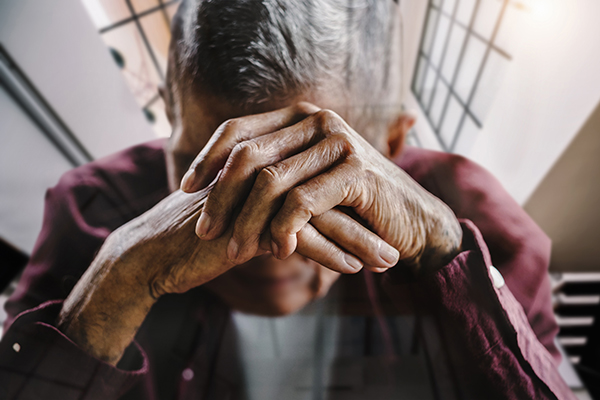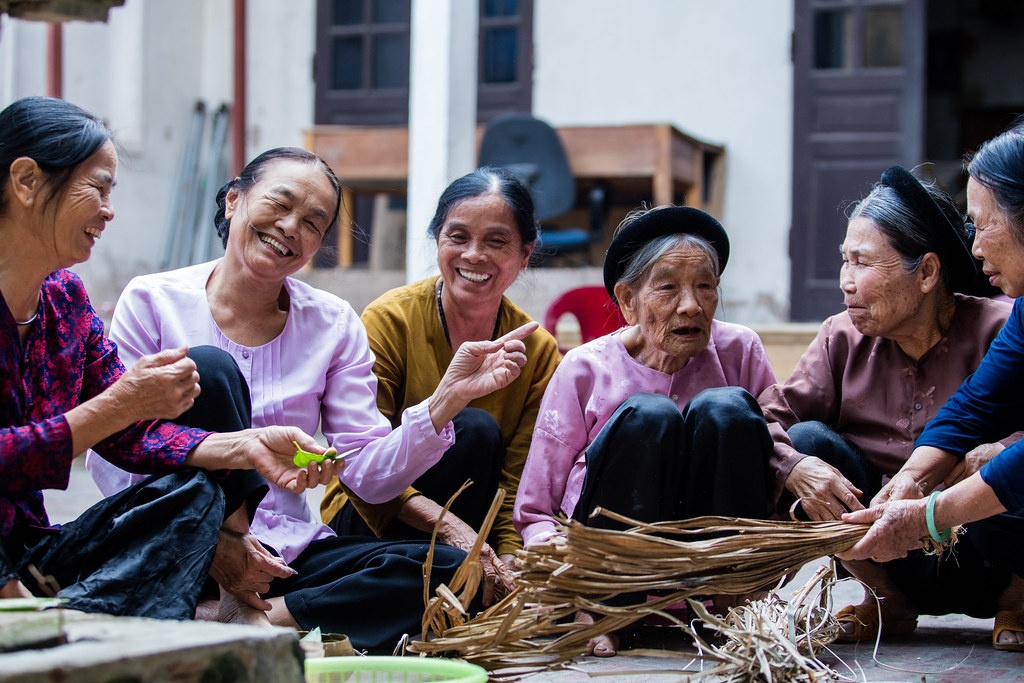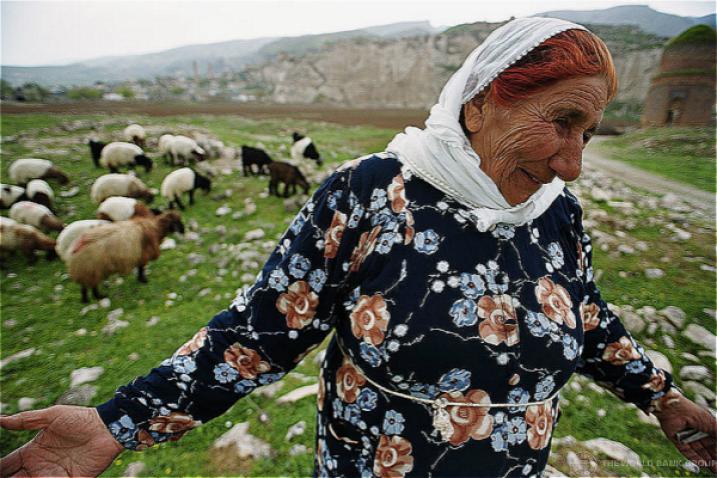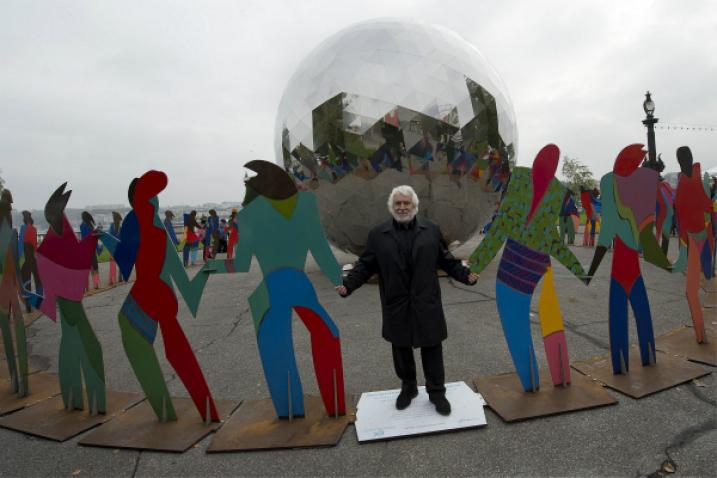
Addressing Gender-Based Violence in Older Age Policy, Law and Evidence-based Responses
In the context of last year’s commemoration of World Elder Abuse Awareness Day (WEAAD), the World Health Organization in partnership with Department of Economic and Social Affairs (UN DESA), Office of the United Nations High Commissioner for Human Rights (OHCHR), United Nations Population Fund (UNFPA), UN WOMEN and with support from the International Network for the Prevention of Elder Abuse (INPEA), published Tackling abuse of older people: five priorities for the UN Decade of Healthy Ageing 2021–2030. The resource outlined key priorities to prevent and respond to abuse of older persons and, hence, contribute to improving their health, well-being and dignity. This year, the commemoration will provide an update on the implementation of the priorities.
Ahead of the milestone of the 75th anniversary of the Universal Declaration of Human Rights (UDHR), this year’s commemoration of WEAAD will also connect with the year-long campaign to promote and recognise the 75th anniversary. As the month of June of the campaign will focus on showcasing the UDHR by raising awareness on its legacy, relevance and activism as relates to women’s rights, the theme of the 2023 WEAAD commemoration in the United Nations Headquarters in New York is entitled Closing the Circle: Addressing Gender-Based Violence (GBV) in Older Age - Policy, Law and Evidence-based Responses.
Thursday, 15 June 2023, 1:15pm – 2:30pm (EDT) New York, UNHQ
An expert panel will present overall trends of violence against older persons, highlight gaps and challenges of implementing the objectives in Madrid International Plan of Action on Ageing. Expert panelists will also present five priorities to combat violence against older persons in the Decade of Healthy Ageing (2021-2030).
Addressing Elder Abuse
Between 2019 and 2030, the number of persons aged 60 years or over is projected to grow by 38%, from 1 billion to 1.4 billion, globally outnumbering youth, and this increase will be the greatest and the most rapid in the developing world, and recognizing that greater attention needs to be paid to the specific challenges affecting older persons, including in the field of human rights.
Elder abuse is a problem that exists in both developing and developed countries yet is typically underreported globally. Prevalence rates or estimates exist only in selected developed countries — ranging from 1% to 10%. Although the extent of elder mistreatment is unknown, its social and moral significance is obvious. As such, it demands a global multifaceted response, one which focuses on protecting the rights of older persons.
Approaches to define, detect and address elder abuse need to be placed within a cultural context and considered along side culturally specific risk factors. For example, in some traditional societies, older widows are subjected to forced marriages while in others, isolated older women are accused of witchcraft. From a health and social perspectives, unless both primary health care and social service sectors are well equipped to identify and deal with the problem, elder abuse will continue to be underdiagnosed and overlooked.
Age-friendly cities benefit everyone
Age-friendly cities benefit everyone. Everyone, and especially older people, including migrants and refugees living in communities outside their own, can benefit from approaches that target the challenges in creating enabling environments for all to live and thrive.
Did you know?
- Around 1 in 6 people 60 years and older experienced some form of abuse in community settings during the past year.
- Rates of elder abuse are high in institutions such as nursing homes and long-term care facilities, with 2 in 3 staff reporting that they have committed abuse in the past year.
- Rates of elder abuse have increased during the COVID-19 pandemic.
- Elder abuse can lead to serious physical injuries and long-term psychological consequences.
- Elder abuse is predicted to increase as many countries are experiencing rapidly ageing populations.
- The global population of people aged 60 years and older will more than double, from 900 million in 2015 to about 2 billion in 2050.
Source: WHO Fact Sheets
Create a world for all ages
Ageism affects how we think, feel and act towards others and ourselves based on age. It imposes powerful barriers to the development of good policies and programmes for older and younger people, and has profound negative consequences on older adults’ health and well-being. Launched by World Health Organization, the Combatting Ageism Campaign aims to change the narrative around age and ageing and help create a world for all ages.
Related Observances
- International Day for the Elimination of Racial Discrimination (21 March)
- International Day of Families (15 May)
- Global Day of Parents (1 June)
- International Day of Older Persons (1 October)
- Human Rights Day (10 December)
- International Universal Health Coverage Day (12 December)
Population ageing is poised to become one of the most significant social transformations of the twenty-first century, with implications for nearly all sectors of society, including labour and financial markets, the demand for goods and services, such as housing, transportation and social protection, as well as family structures and intergenerational ties.
The Decade of Healthy Ageing (2021-2030) is an opportunity to bring together governments, civil society, international agencies, professionals, academia, the media, and the private sector for ten years of concerted, catalytic and collaborative action to improve the lives of older people, their families, and the communities in which they live.
International days and weeks are occasions to educate the public on issues of concern, to mobilize political will and resources to address global problems, and to celebrate and reinforce achievements of humanity. The existence of international days predates the establishment of the United Nations, but the UN has embraced them as a powerful advocacy tool. We also mark other UN observances.






